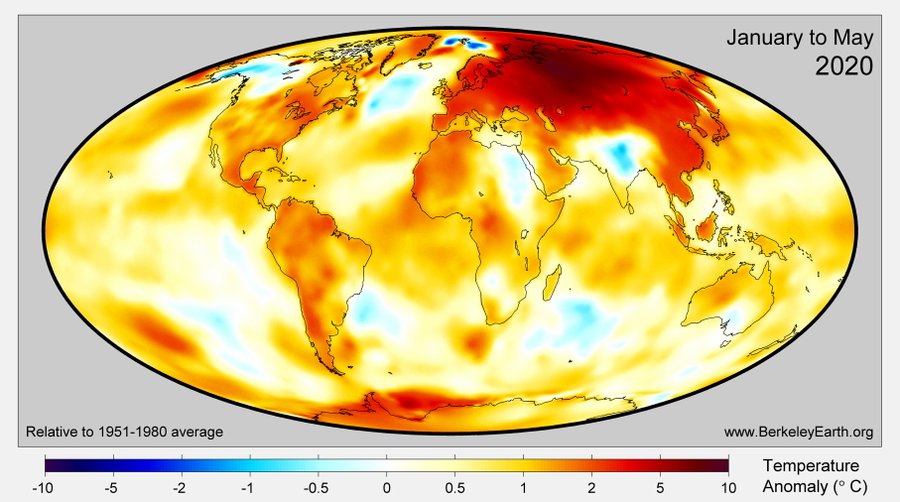For the first five months of the year, Russia has warmed about 4°C since 1850, with this year spiking another 2+°C. Not good. Robert Rhode
says it's "the largest January to May anomaly ever observed in any national average." More on this later today.

There are consequences.
ReplyDeleteFor example, a recent oil spill in Russia has been attributed to melting permafrost.
https://www.bbc.co.uk/news/world-europe-52977740
This comment has been removed by the author.
ReplyDeleteAny idea how large the anomaly is in terms of a local variance in temperature? Is this a +3 σ event? + 4 σ?
ReplyDeleteSigma for this data is about 0.35C according to the error bars
ReplyDeleteThe most recent value is about 2.4C above the trend.
6.9 sigmas?
The Carbon Brief suggests that persistent high-pressure “blocking” weather systems are responsible.
ReplyDeleteThey go on to ask "what are the prospects for blocking events in a warming climate? And could a rapidly warming Arctic also have a role to play?"
To which they answer "Blocking hasn't noticeably changed as the planet has warmed." and "Maybe".
Layzeg
ReplyDeleteNot quite.
The article noted that there was considerable short term variability in the amount and frequency of blocking.
The article did not say that there was no noticeable increase in blocking, but that there was no significant increase in blocking.
Decoding the scientist-speak, they are saying that we see more blocking lately, but we don't yet know whether this is just normal variation or whether there is a real cause.
The article did not say that there was no noticeable increase in blocking, but that there was no significant increase in blocking.
ReplyDeleteFair point. It's worth noting though that In general, models “predict a general decrease in blocking occurrence in the future”